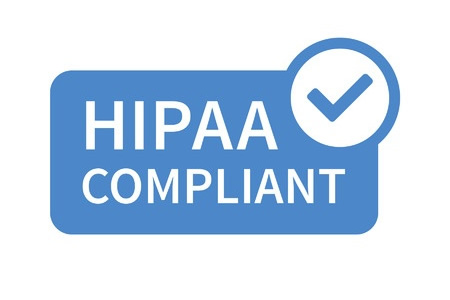A key to success for HIPAA compliance is having a full HIPAA compliance program that includes comprehensive training. HIPAA training is an key element of HIPAA compliance because it ensures that all employees and relevant personnel understand the regulations, their responsibilities, and the potential risks associated with mishandling protected health information (PHI). Comprehensive HIPAA training programs educate staff on the importance of privacy and security measures, the proper handling of PHI, and the protocols for reporting and addressing potential breaches or violations. It also helps create a culture of compliance within an organization, reducing the likelihood of inadvertent errors or oversights that could lead to violations. Ongoing training and regular updates are crucial to keep up with evolving HIPAA requirements and cybersecurity threats. By investing in robust training initiatives, organizations can significantly enhance their ability to maintain HIPAA compliance and protect patient privacy.
| Key Component | Comprehensive Description |
|---|---|
| HIPAA Training and Awareness | Comprehensive training programs are essential to educate all employees and personnel about HIPAA regulations, including the Privacy Rule, Security Rule, and patient rights. Training instills an understanding of PHI handling, breach response, and ethical behavior. It creates a culture of compliance and keeps staff updated on evolving requirements. Regular assessments ensure employees’ comprehension and readiness to uphold privacy and security. |
| Leadership and Accountability | Effective HIPAA compliance begins with strong leadership committed to privacy and security. Leadership appoints a Privacy and Security Officer responsible for overseeing compliance efforts, establishing accountability, and promoting a culture of compliance throughout the organization. They play a pivotal role in setting expectations and fostering commitment to HIPAA standards. |
| Risk Assessment | Conducting regular risk assessments is crucial for identifying vulnerabilities and threats to PHI. These assessments provide insights into areas requiring attention and allow for the development of targeted mitigation strategies. They are a foundation for informed decision-making and proactive risk management. |
| Policies and Procedures | Well-documented policies and procedures aligned with HIPAA requirements are essential. These documents cover areas such as data access, sharing, breach response, and workforce training. They provide clear guidelines for employees, ensuring consistent compliance efforts and facilitating efficient responses to security incidents. |
| Access Control | Strong access controls, including role-based access, user authentication, and audit logs, are essential to ensure that only authorized individuals can access PHI. Implementing robust access control measures prevents unauthorized access and safeguards patient privacy. |
| Encryption and Data Security | Encrypting ePHI and employing robust data security measures protect against unauthorized access and data breaches. This includes encryption of data in transit and at rest, along with robust authentication mechanisms and audit trails to monitor data security effectively. |
| Breach Response Plan | A well-developed and regularly tested breach response plan is critical. Quick and effective responses to breaches can minimize their impact and reduce potential legal consequences. A comprehensive plan includes incident identification, notification procedures, and steps for mitigating harm to affected individuals. |
| Business Associate Agreements | Ensuring that business associates handling PHI are also HIPAA-compliant is essential. Formalizing these relationships with Business Associate Agreements is a legal requirement and helps maintain a secure PHI ecosystem. |
| Monitoring and Auditing | Regular monitoring and auditing of systems and processes for HIPAA compliance help identify and rectify potential issues proactively. These audits include assessments of policies, procedures, access controls, and data security measures to maintain a high level of security and compliance. |
| Documentation and Record-Keeping | Properly maintaining records of HIPAA compliance efforts, including policies, training records, and incident reports, is crucial for demonstrating compliance during audits or investigations. Well-organized documentation ensures transparency and accountability. |
| Ongoing Updates | Staying current with changes to HIPAA regulations and adapting the compliance program accordingly is vital. HIPAA is not static, and organizations must continuously monitor updates and adjust their policies and procedures to reflect evolving requirements and emerging security threats. |
| Culture of Compliance | Fostering a culture of compliance within the organization ensures that all staff members understand the importance of protecting PHI. It creates a mindset where privacy and security are top priorities, encouraging individuals to adhere to HIPAA standards in their daily tasks. |
| Auditing and Self-Assessment | Conducting regular internal audits and self-assessments helps identify areas of improvement and address them proactively. These assessments allow organizations to evaluate their compliance efforts, identify weaknesses, and take corrective actions to enhance their HIPAA compliance program. |
A HIPAA compliance program that includes comprehensive training is a key element in the successful adherence to HIPAA regulations. It empowers employees with the knowledge, skills, and awareness necessary to protect patients’ privacy and safeguard their health information. By investing in comprehensive training initiatives, healthcare organizations not only fulfill their legal obligations but also create a culture of compliance.



